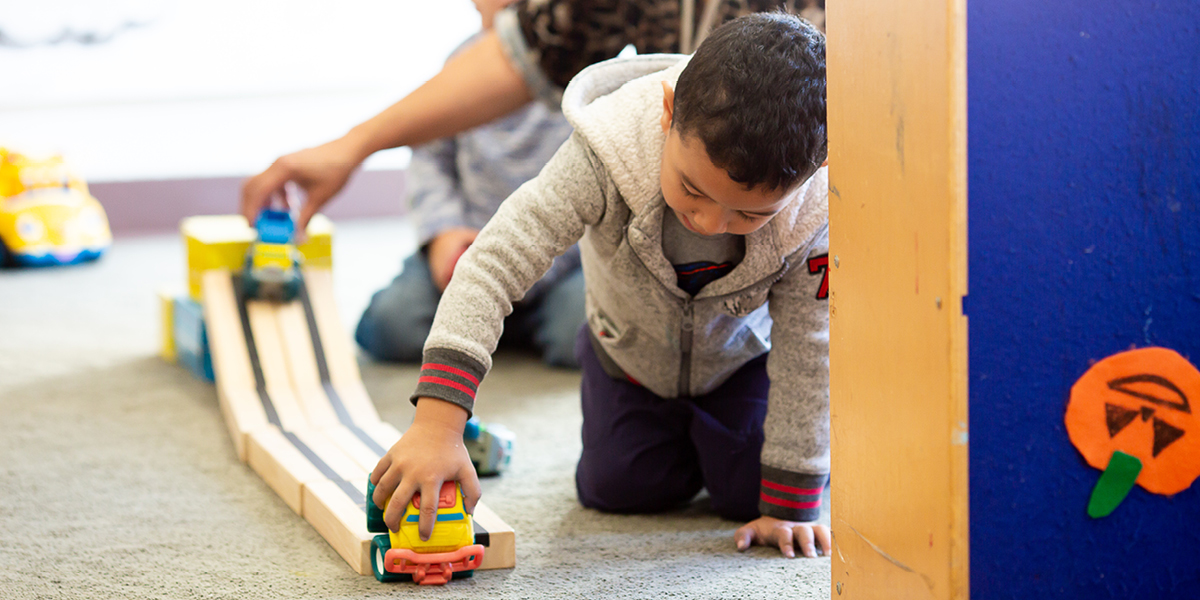Last year, the world was in the grip of the worldwide pandemic and its economic fallout, with many Americans underemployed or unemployed. Enter, the American Rescue Plan in July 2021 and its expanded Child Tax Credit.
The legislation expanded the Child Tax Credit to include:
- Increasing the credit to up to $3,600 per child
- Expanding the child age eligibility to children aged 17 and under
- Allowing monthly automatic advanced payments
- Removing the income requirements to support families with little or no income
The country’s under-resourced families benefitted the most from the expanded Child Tax Credit, with research showing a sharp reduction in child poverty and food insecurity.
Unfortunately, although the expanded Child Tax Credit could help lift millions of families out of poverty, it was a challenge to reach newly eligible families that could claim the credit, such as those who did not file taxes the year prior and immigrant and refugee families.
San Diego Families

In San Diego County alone, up to an estimated 25,000 children were at-risk of missing out on the expanded Child Tax Credit, according to the Tax Policy Center. Additional research by the California Policy Lab also demonstrated that up to $140 million would be left on the table for families in the region.
Funding from the The David and Lucile Packard Foundation, the EITC Funders Network and an additional $20,000 from The San Diego Foundation resulted in $270,000 in grants awarded by The San Diego Foundation Healthy Children & Families Initiative.
Grant funding was distributed to members of the San Diego County Community Health Worker Collaborative, a network of nonprofit community-based organizations coordinated through the County of San Diego Health and Human Services Agency. The grant supports the Community Health Worker Collaborative to help intermittent filers from low-income and immigrant families successfully enroll to receive the Child Tax Credit.
Working with Local Partners
At the start of the pandemic, the Community Health Worker Collaborative conducted outreach to communities about COVID-19 disease prevention and care, with their work later expanded to include basic needs referrals, such as food assistance. The collaborative was uniquely positioned to provide assistance, as it includes 60 community health workers who speak more than 30 different languages and dialects.
“As a community health worker, your main goal is to strive for the communities you serve,” said Ilhan Omar, a community health worker with Somali Family Services of San Diego. “You want to be able to work hard and provide resources for them.”
With deep knowledge of their community’s culture and norms, community health workers are recognized as trusted messengers that can reach the families most in need.
“My experience in doing Child Tax Credit [outreach] was definitely an eye opener,” Ilhan said. “I’ve noticed that the population we serve often don’t receive awareness about [the Child Tax Credit] or free tax filing locations.
“The impact I saw in the community while doing CTC work is that at first there was a lot of confusion and fear, Ilhan continued. “Clients were afraid of having to pay back the [U.S. Internal Revenue Service] if they received any type of money from [the Child Tax Credit] … Once we were able to educate them on the Child Tax Credit, they were more comfortable with receiving help.”

The Community Health Worker Collaborative is based on the highly successful promotora public health model in the Latinx community. By leveraging their expertise in outreach strategies, the members of the Community Health Worker Collaborative seamlessly incorporated Child Tax Credit outreach into their list of resources for their communities.
Many families have received their Child Tax Credit and shared its impact in their lives.
One refugee family from Thailand who learned about the tax credit from a Union of Pan Asian Communities food distribution event shared that “what seems like simple basic need to some people are actually at times very difficult for us to obtain. The extra income from the Child Tax Credit allowed our parents to buy us school supplies, clothes and extra food.”
The family also shared that their car broke down a couple of weeks ago and — because of the extra money they saved from the monthly advanced Child Tax Credit payments — they were able to get it fixed.
Preparing for tax season
While the expanded Child Tax Credit may not continue beyond the 2021 tax season, the Community Health Workers Collaborative’s partners continue to inform their communities about the credit and connect them with free tax filing services to those who qualify.
Those interested in free tax preparation services, should visit GetYourRefund.org/SanDiego (English) or GetYourRefund.org/es/SanDiego (Spanish).
Additionally, program grantee SBCS also offers free tax preparation assistance for low- to moderate-income residents (annual income of $57,500 or below) through April 15, 2022. For more information, visit SBCSSanDiego.org/tax-services.
The Chicano Federation also offers tax preparation services. For more information, contact their office directly at (619) 285-5600.




